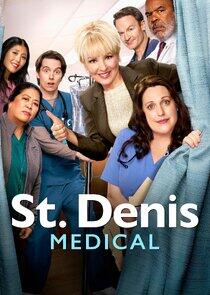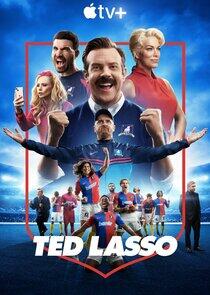America's Secret Slang - Season 2
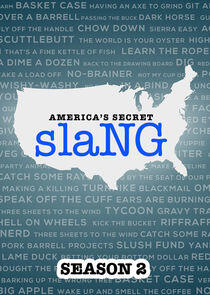
Season 2

Episodes
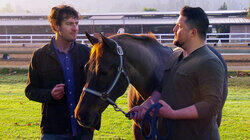
Straight from the Horse's Mouth
In this episode, we look at the ways that American English has been transformed by animals, food, sports--and death. Ever wonder why we say "that's a horse of a different color" or "that's for the birds"? Why do we "chew the fat" when we talk or "put up our dukes" when we fight? And why, when we die, do we "kick the bucket"? All these terms show the ways that American English has evolved and mutated through the animals we raise, the food we eat, the games we play and the end we want to avoid. Zach Selwyn hosts.
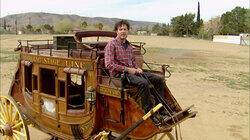
Riding Shotgun
Every day we use words and phrases that come from deep within our history. Their origins reveal a lot about us and where we came from, but most of us have no idea what these terms originally meant. In this episode we look at how forms of transportation from horses to trains to cars, and different intoxicating substances from opium to booze, influenced the common words and phrases we say every day. Why do insensitive people "ride roughshod" over others, while lucky people ride the "gravy train?" Who put the jay in "jaywalker," and the bus in "busboy?" Why are "highways" high, what do "turnpikes" turn, and why is a wild person "hell on wheels?" When it comes to substances, who put the hero in heroin, the junk in junkie, and the ooze in booze? And what's the connection between George Washington and the words grog and groggy?

Lower the Boom
In this episode, we look at the ways that American English was transformed by the high seas, the ancient world, the movers and shakers of big business, and the news industry. Ever wonder why we're "pooped" when we're tired? Or say that a drunk is "three sheets to the wind"? Why do we say our "ears are burning" if someone's talking about us, and why is October the 10th month, even though its name means "8th"? Why is a rich, powerful person called a "tycoon"? And why are those supermarket scandal sheets called "tabloids"? All these terms show the powerful impact that sailing, big business, the ancient world and the news media have had on American English.
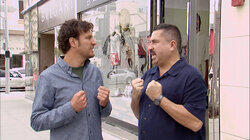
Off the Cuff
In this episode, we look at the ways that American English has been transformed by the clothes we wear, the crimes we commit and the punishments we receive, the insults we use...and the internet. Ever wonder why, when we "speak off the cuff," we're "flying by the seat of our pants"? Why is a street robbery called a "mugging," and does "blackmail" really have anything to do with mail? What's the difference between a "nerd" and a "geek," and who was the first person to use "OMG"? All these terms show the ways that American English has built up a wardrobe of words by begging, borrowing and stealing.
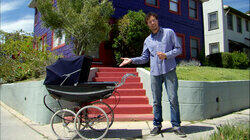
Cut to the Chase
In this episode we look at how entertainment from circuses and vaudeville to plays and movies, influenced the common words and phrases we say every day. How did bad actors give us the word "explode," rude actors give us the phrase "to upstage" someone, and superstitious actors give us "break a leg?" How did the circus give us words like "jumbo" and "Siamese twins," and the idea that politicians "jump on the bandwagon?" Why did vaudeville invent "deadpan" humor, "slapstick" comedy and "off color jokes?" And how did the movies give us expression like "cut to the chase" and "cliffhanger?"
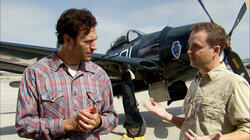
Bite the Bullet
In this episode, we look at words from the worlds of the military, police, aviation, and baseball. Ever wonder why a "last ditch effort" rarely involves digging an actual ditch? Or why a temporary worker is hired as a "freelancer"? How did the army tank get its name? Why do we shoot at a bulls-eye, and is it "duct" tape or "duck" tape? When a test pilot "pushes the envelope," what envelope is his pushing? What's the connection between one of America's outlawed sports, and the front of every plane? Words that started on the baseball diamond have spread to aspects of our everyday life. Why is a "southpaw" so named, not just in baseball, but in life? And if you want to see a bunt, the old ball yard isn't the only place for that... All these words and phrases show the richness and depth of our language. If you just know where to look.
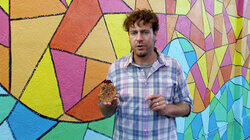
Go for Broke
In this episode, we look at the ways that American English has been transformed by the Vikings, the Cold War, computers, music, gambling, and the different meaning we give to the colors of the rainbow. Why is a "red letter day" good, but being "in the red" is bad? Why do we "boot up" a computer? What's a "jackpot" and why do we "hit" it? Did the term "Cold War" really begin in the Middle Ages? And what's the original meaning of the Viking word "thing"? All these terms show the ways that American English has been invigorated by crises from Viking invasions to the threat of nuclear war, and inspired by the colors we see, the music hear...and the money we lose in bets. And they prove that when it comes to our unique American language, we speak our history every day. If you just know where to look.
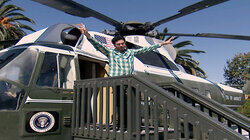
Hail to the Chief
In this episode, we look at the ways that American English has been transformed by American presidents, by the language of sex and romance, by good and bad manners. We'll also explore how easy it is to insult people of different groups without even realizing it. Did you know who invented the phrase Founding Fathers, and what the Founding Fathers originally called themselves? Or how American presidents popularized terms like "three martini lunch," "lunatic fringe" and "keep the ball rolling?" When it comes to insults, did you know that the cheer "hip hip hurray" was originally anti-Semitic, "hooligan" was anti-Irish, and the phrase "in cahoots" was anti-French? When it comes to sex, how did a diet of meat give us the word "mating," why do young men "sow their wild oats," and why is the word "hysterical" an insult to women? And when it comes to manners, we'll explore the strange roots of words like "posh," "snob," "stuck up" and even "hello" and "goodbye."
Recently Updated Shows

Chopped
Chopped is a cooking competition show that is all about skill, speed and ingenuity. Each week, four chefs compete before a panel of expert judges and turn baskets of mystery ingredients into an extraordinary three-course meal. Course by course, the chefs will be "chopped" from the competition until only one winner remains. The challenge? They have seconds to plan and 30 minutes to cook an amazing course with the basket of mystery ingredients given to them moments before the clock starts ticking! And the pressure doesn't stop there. Once they've completed their dish, they've got to survive the Chopping Block where our three judges are waiting to be wowed and not shy about voicing their culinary criticisms! Our host, Ted Allen, leads this high-energy, high-pressure show that will have viewers rooting for a winner and cheering for the losers. Chopped is a game of passion, expertise and skill — and in the end, only one chef will survive the Chopping Block. Who will make the cut? The answer is on Chopped!

When Calls the Heart
When Calls the Heart is inspired by Janette Oke's bestselling book series about the Canadian West, the series tells the captivating story of Elizabeth Thatcher, a young teacher accustomed to her high society life, who receives her first classroom assignment in Coal Valley, a small coal mining town where life is simple, but often fraught with challenges. Upon arrival, Elizabeth befriends Abigail Stanton, a wife and mother whose husband, the foreman of the mine, along with a dozen other miners, has just been killed in an explosion. The newly widowed women find their faith is tested when they must go to work in the mines to keep a roof over their heads. Set against the wild canvas of a 19th century coal town, Elizabeth will have to learn the ways of the frontier if she wishes to thrive in the rural west on her own.

Wild Cards
Wild Cards follows the unlikely duo of a gruff, sardonic cop and a spirited, clever con woman. Ellis, a demoted detective, has unfortunately spent the last year on the maritime unit, while Max has been living a transient life elaborately scamming everyone she meets. But when Max gets arrested and ends up helping Ellis solve a local crime, the two are offered the opportunity to redeem themselves, with Ellis going back to detective and Max staying out of jail. The catch? They have to work together, with each using their unique skills to solve crimes. For Ellis, that means hard-boiled shoe leather police work; for Max, it means accents, schemes and generally befriending everyone in sight, while driving Ellis absolutely nuts. Against the backdrop of beautiful Vancouver — with all its unique, charming, and even contradictory neighbourhoods and subcultures — the two will have to learn what it means to trust another person and maybe actually become partners.
